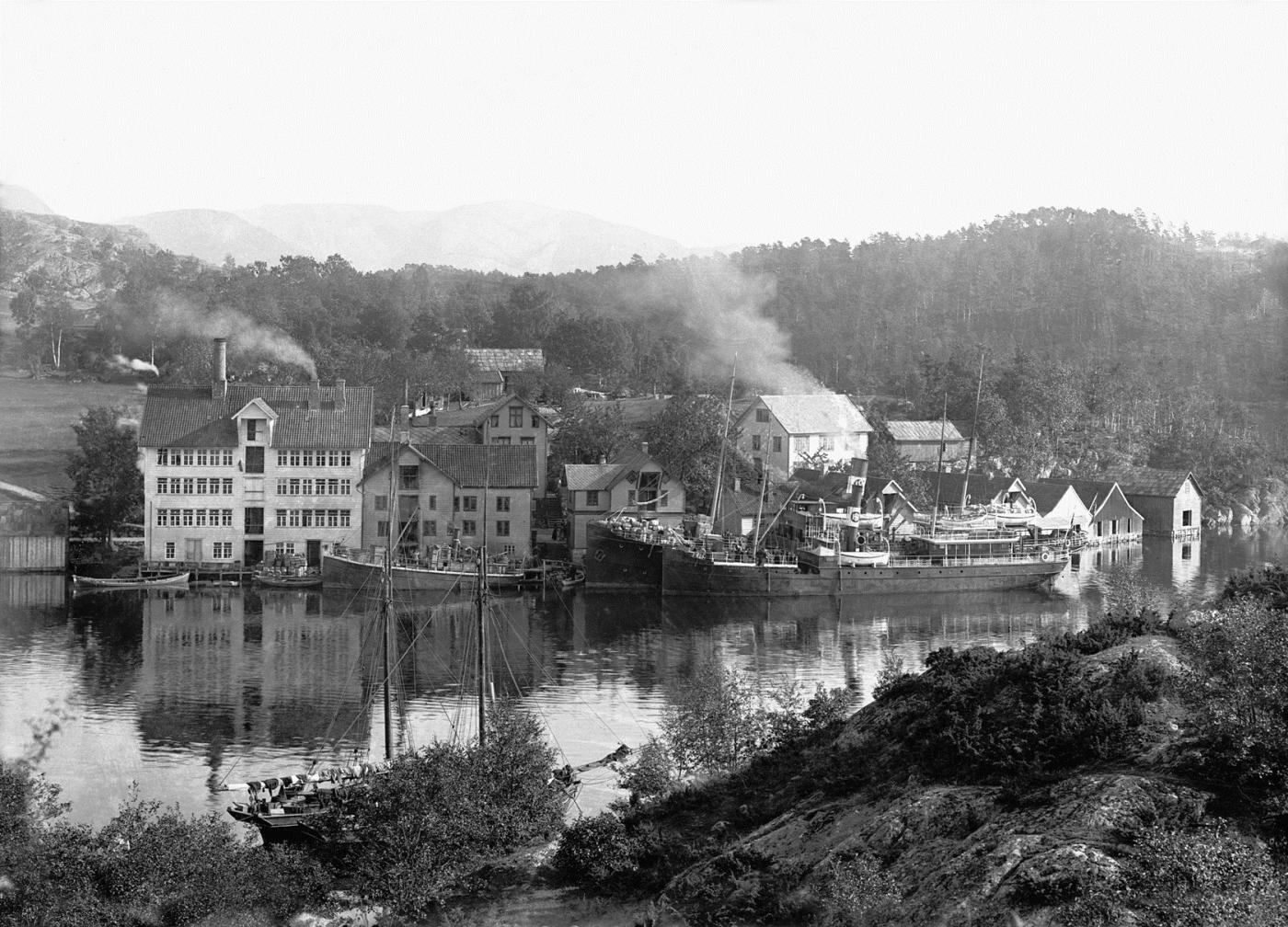Sunde had a good harbour, and Haktor Thorsen, who for some time had been trading at Holmedalsanden, enriched himself on fishing and transportation. His ships carried herring from Nordland to the Baltic countries and returned with loads of corn to Sunde.
In 1858 Haktor Thorsen started hermetically conserving brisling and anchovies; in the initial period in handmade tin cans. When the business started using a welting machine procured from Sweden, the production capacity increased. But only after Thorsen had studied conservation technique in France in 1870, did the business take off in earnest.
In 1875 Hermann Valvatne, a trader from Sagvåg, bought Thorsen’s country store. Valvatne also entered into the business of conservation, and erected a large factory building to the north of the store. Towards the turn of the century the two factory owners employed around a hundred workers in the best season, and gradually, Sunde became a centre for industry, trade and communication. From the 1860s Sunde had fixed steamship routes to Bergen and Stavanger. Haktor Thorsen became a steamship agent.
Around 1890 the foundation was laid for another big industrial enterprise that came to be important for Sunde; the shipyard of Hans Gravdal at Opsanger. The enterprise was gradually moved from Gravdal at Halsnøy to the site at Opsangervågen. Gravdalsverven (the Gravdal shipyard) developed to become one of the largest shipbuilding yards of wooden ships in the country. Sunde had a post office from 1892 and a national telephone service a few years later. The conservation factory was taken over by Chr. Bjelland & CO. in 1914, and the operation ended in 1988. A great industrial period thus came to an end.


